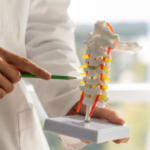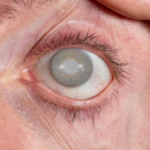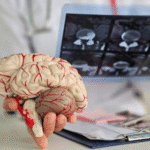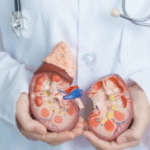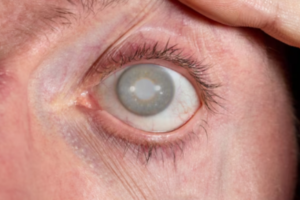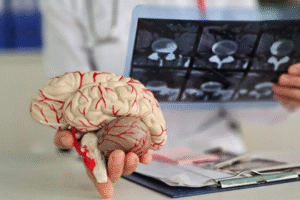1. Introduction to Respiratory Medicine
Respiratory medicine is a medical specialty focusing on the diagnosis, treatment, and management of diseases affecting the respiratory system. This includes the lungs, airways, and other structures involved in breathing.
2. The Role of a Pulmonologist
Pulmonologists are doctors specialized in respiratory medicine. They diagnose and treat conditions such as asthma, chronic obstructive pulmonary disease (COPD), and pneumonia, among others.
3. Common Respiratory Diseases
Respiratory medicine covers a range of conditions, including asthma, COPD, lung infections, lung cancer, and interstitial lung disease. Each condition requires specific diagnostic and therapeutic approaches.
4. Asthma: Symptoms and Treatment
Asthma is a chronic condition characterized by inflammation and narrowing of the airways. Treatment includes inhalers, medications, and lifestyle changes to manage symptoms and prevent attacks.
5. Chronic Obstructive Pulmonary Disease (COPD)
COPD is a group of progressive lung diseases, including emphysema and chronic bronchitis. Symptoms include shortness of breath and chronic cough. Treatment focuses on symptom management and slowing disease progression.
6. Lung Infections: Types and Treatments
Lung infections, such as pneumonia and bronchitis, are common respiratory issues. Treatment often involves antibiotics for bacterial infections, rest, and supportive care.
7. Lung Cancer: Diagnosis and Management
Lung cancer is a severe condition with significant mortality rates. Early diagnosis and treatment, including surgery, chemotherapy, and radiation, are crucial for improving outcomes.
8. Interstitial Lung Disease
This group of disorders involves scarring of lung tissue, leading to stiffness and breathing difficulties. Treatment focuses on managing symptoms and slowing disease progression.
9. Pulmonary Function Tests
Pulmonary function tests (PFTs) measure lung capacity and airflow. These tests are crucial for diagnosing and monitoring respiratory diseases like asthma and COPD.
10. Imaging in Respiratory Medicine
Imaging techniques such as chest X-rays and CT scans are essential tools in respiratory medicine. They help visualize lung structures and detect abnormalities like tumors or infections.
11. Bronchoscopy: A Diagnostic Tool
Bronchoscopy involves using a flexible tube with a camera to examine the airways and lungs. It helps diagnose conditions such as lung infections, tumors, and chronic cough.
12. Allergy Testing and Management
Allergies can significantly impact respiratory health. Allergy testing helps identify triggers, and management includes medications and lifestyle changes to minimize exposure and symptoms.
13. Sleep-Related Breathing Disorders
Conditions like sleep apnea affect breathing during sleep. Treatment includes lifestyle changes, CPAP machines, and sometimes surgery to ensure proper airflow during sleep.
14. Respiratory Medicine for Children
Pediatric respiratory medicine addresses conditions affecting children’s respiratory systems, such as asthma, cystic fibrosis, and respiratory infections, with treatments tailored to their specific needs.
15. Smoking and Respiratory Health
Smoking is a leading cause of respiratory diseases, including lung cancer and COPD. Smoking cessation programs are vital in preventing and managing these conditions.
16. Occupational Lung Diseases
Exposure to harmful substances in the workplace can lead to occupational lung diseases. Prevention and early intervention are crucial in managing conditions like asbestosis and silicosis.
17. Environmental Factors and Respiratory Health
Environmental pollutants, such as air pollution and allergens, significantly impact respiratory health. Reducing exposure and advocating for cleaner air are essential strategies in respiratory medicine.
18. Respiratory Rehabilitation
Respiratory rehabilitation programs include exercise training, education, and support to help patients with chronic respiratory diseases improve their quality of life and physical function.
19. Innovations in Respiratory Medicine
Advancements in respiratory medicine, such as new medications, treatment protocols, and diagnostic tools, continue to improve patient outcomes and quality of life.
20. Patient Education and Self-Management
Educating patients about their conditions and encouraging self-management strategies, such as using inhalers correctly and recognizing symptom triggers, are vital components of respiratory care.
21. Role of Nutrition in Respiratory Health
Proper nutrition supports overall respiratory health. Diet can influence inflammation and immune response, making nutritional counseling a valuable part of respiratory care.
22. Mental Health and Respiratory Diseases
Chronic respiratory diseases can impact mental health, leading to conditions like anxiety and depression. Integrating mental health support is crucial for comprehensive patient care.
23. Emergency Care in Respiratory Medicine
Acute respiratory conditions, such as asthma attacks and severe infections, require prompt emergency care to prevent complications and ensure patient safety.
24. Telemedicine in Respiratory Care
Telemedicine offers remote consultation and follow-up, making respiratory care more accessible, especially for patients in remote areas or with mobility issues.
25. Future Directions in Respiratory Medicine
Research and innovation continue to drive the future of respiratory medicine. Personalized treatments, advanced diagnostics, and better preventive measures are on the horizon, promising improved patient care and outcomes.

